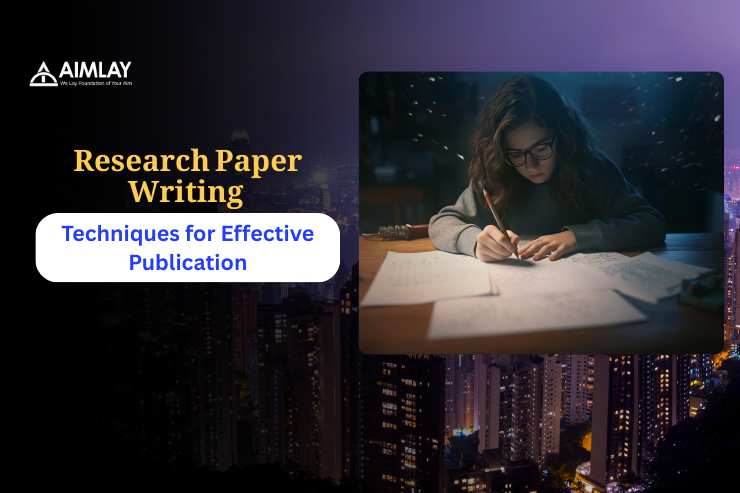Understanding the Differences Research Proposal vs. Synopsis
- aimlay01
- May 11, 2024
- 3 min read
Updated: Jun 25, 2024
Introduction
In the realm of academia and research, two essential documents lay the groundwork for any scholarly endeavor: the research proposal and the synopsis. While often used interchangeably, these documents serve distinct purposes in the research process. This essay aims to elucidate the disparities between a research proposal and a synopsis, delineating their unique roles, structures, and functions.
Understanding the Research Proposal
A research proposal serves as a comprehensive blueprint for a study, detailing its objectives, methodologies, timelines, and anticipated outcomes. It typically comprises several sections, including an introduction, literature review, methodology, timeline, and budget. The introduction sets the stage by elucidating the research problem, its significance, and the overarching goals of the study. Subsequently, the literature review provides a critical analysis of existing scholarship relevant to the research topic, identifying gaps that the proposed study seeks to address.
The methodology section delineates the research design, sampling techniques, data collection methods, and analytical procedures. A well-crafted methodology ensures the rigor and validity of the study's findings. Moreover, the timeline offers a sequential overview of the research activities, outlining milestones and deadlines. Additionally, the budget section provides a breakdown of the financial resources required to execute the study, encompassing expenses such as equipment, personnel, and travel.
Importantly, a research proposal undergoes rigorous scrutiny by peers, advisors, and funding agencies, necessitating clarity, coherence, and feasibility. It serves as a contract between the researcher and stakeholders, outlining the scope and deliverables of the proposed study. Furthermore, a compelling research proposal not only persuades reviewers of the study's merit but also facilitates the allocation of resources necessary for its implementation.

Deciphering the Synopsis
In contrast to a research proposal, a synopsis encapsulates the essence of a study in a concise and structured format. It provides a snapshot of the research project, offering a succinct overview of its objectives, methodology, and anticipated outcomes. While the length and specific requirements of a synopsis may vary across disciplines and institutions, it typically includes key elements such as the research question, objectives, methodology, and significance.
The research question serves as the focal point of the synopsis, articulating the central inquiry that the study seeks to address. It should be clear, focused, and aligned with the broader aims of the research project. Moreover, the objectives delineate the specific aims and goals of the study, elucidating the intended outcomes and contributions to the field.
In outlining the methodology, the synopsis provides a brief overview of the research design, data collection methods, and analytical techniques. While it may not delve into the same level of detail as a research proposal, it should convey the methodological approach adopted by the researcher. Additionally, the synopsis highlights the significance of the study, elucidating its potential impact on theory, practice, or policy.
Unlike a research proposal, a synopsis may not undergo the same level of scrutiny or review. However, it serves as a crucial document for various purposes, including grant applications, conference presentations, and academic publications. A well-crafted synopsis enables researchers to succinctly communicate the essence of their study, garnering interest and support from stakeholders and collaborators.
Conclusion
In essence, while both a research proposal and a synopsis play integral roles in the research process, they differ in scope, depth, and audience. A research proposal offers a comprehensive roadmap for a study, addressing its objectives, thesis writing in research methodology, and budgetary requirements. In contrast, a synopsis provides a concise overview of the research project, encapsulating its key elements in a condensed format. Understanding the distinctions between these documents is essential for esearchers navigating the complexities of scholarly inquiry.
M.Sc Nursing Management Courses After 12th Management Courses Online M.com Degree Course M.com Degree Course M.com admission 2024 M.Com course M.com course duration Phd in Marketing Phd in marketing management Phd in Architecture and Planning PhD in Architecture Phd in architecture india Phd in architecture online Phd in Management Phd in Commerce and Management Management course after 12th for commerce PhD in Commerce and Management PhD in Commerce B.Tech Admission 2024 mba in hr mba in human resource management mba hr syllabus mba in human resource management mba human resource management syllabus mba hr subjects mba in hr management mba hr courses what is mba in human resource management what is hr management in mba mba hrm what is mba in hr hr syllabus human resource management syllabus phd in management eligibility phd in management in india phd in management B.Sc program B.Sc Admission PhD admission in Kerala PhD Admission Process Phd Entrance Exam Phd Eligibility Phd Fees Structure Phd Thesis in English Literature Phd in English Literature Phd in Karnataka PhD admission Phd Entrance Exam Phd Eligibility Phd Fees Structure Phd Admission 2024








I appreciate you sharing this well-thought-out essay. The best choice if you're looking for the best research proposal writing service help in Canada. We provide excellent writing services at competitive prices. You can get outstanding services from our staff of highly qualified writers.